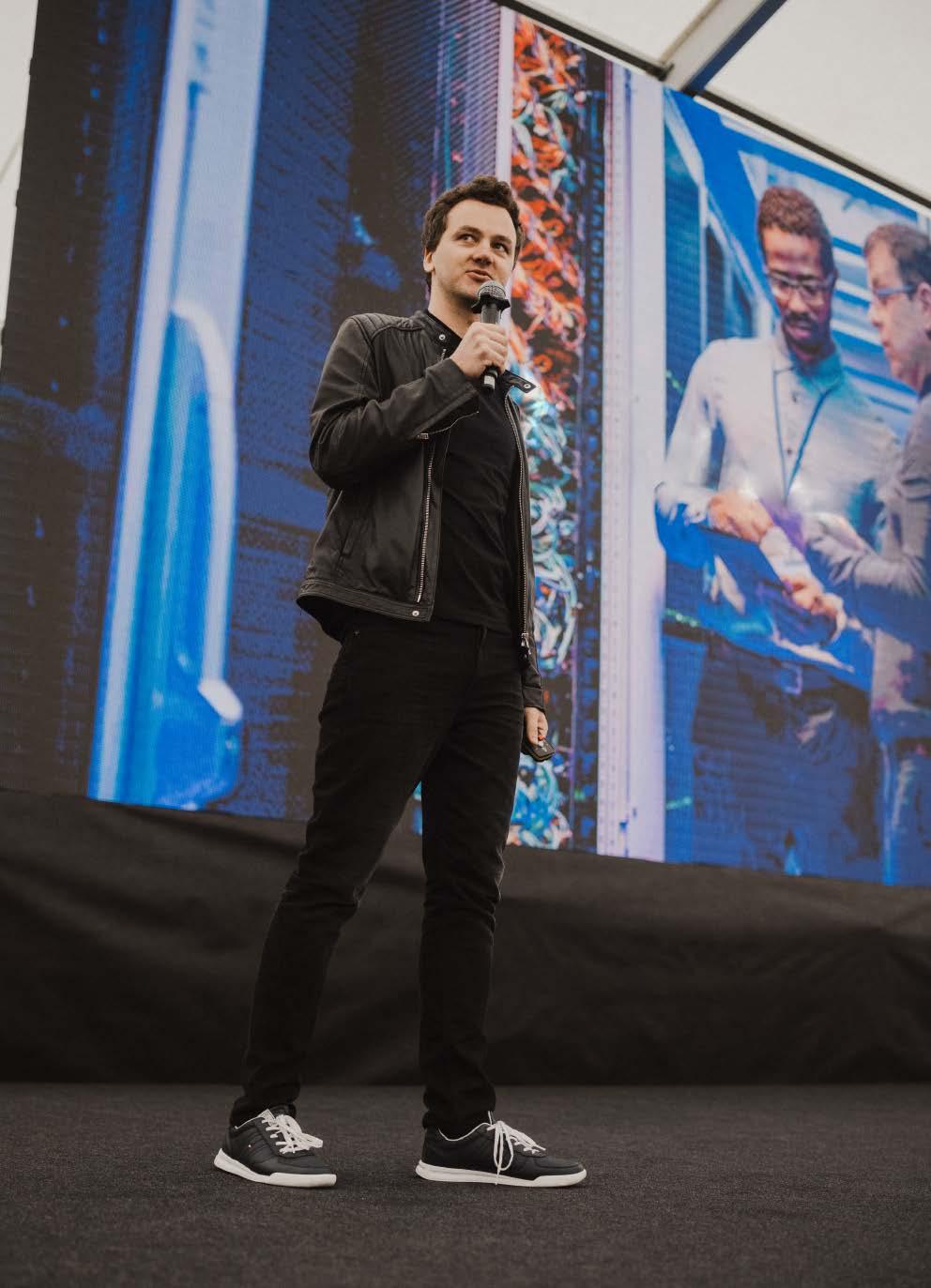
5 minute read
MARIJUS BRIEDIS
GUIDING TECHNICAL LEADERS
How to lead an organization through technological changes? What are the best news channels to follow? What happens when you get stung by a scorpion? Seriously, ask Marijus Briedis anything - our CTO at Tesonet has answers to all the questions. But did you know: if things have been different instead of leading multiple tech teams, he could have ended up in a different part of the globe guiding... tourists?
Advertisement

47
Tell us about yourself: how did you start in the industry and at Tesonet.
Well, it’s not a traditional IT story. I’ve always loved working with computer networks, so after graduating in Kaunas (even with a job offer) I came to Vilnius to try my luck and more precisely - to reconnect with my friends. I was lucky enough to get a job in the IT industry as a Sysadmin and Network Engineer in one of the state-owned enterprises. And even luckier to work with the newest hardware that costs a lot of money to taxpayers. Yet, somewhere in between the terminal lines, I started to watch more to Level II CME quotes of E-mini S&P 500 Futures Index than to the latter. That was a start to my day trading career.
After 3 years when we hit the “-30%” hard stop of our capital, I moved to Nicaragua with a goal to learn Spanish for a year. Then for another year. After having this great time living and traveling there, my savings ended and I had to come back to reality. When I returned to Vilnius, I planned to set up a travel company in Nicaragua or return to the IT industry. You probably guessed where I ended up.
What is the most challenging part of the job? What is the best bit about being a CTO?
I’m responsible for 5 teams’ psychological safety, impact, and delivery to the product.
The scale at the human and technological level is a cute heart challenge. Decisions between innovations and engineering tax is another - somehow you have to keep the balance. But personally, I don't think that we had a real challenge yet since we’ve always been growing and still doing that today.
Probably the best part of my job is to have the ability to see the details and the high-level overview of the product, the people behind it. To see how it changes, also work with such amazing talents every day. I'm truly lucky to be where I’m today and I appreciate this a lot.
What are the main challenges that come with such fast growth of the company?
As everywhere else communication and alignment are the biggest challenges for fast-growing companies. On the other hand, meeting new people every day, getting to know them and hearing their experiences is a good reward. Hiring like-minded people together with our HR is a huge part of my routine. There’s always a risk that somebody will not fit, but there are certain vibes that exist in the teams and we try to maintain it.
How would you describe your management style? Any tips & tricks?
You should ask my colleagues about this one. Different projects, teams, tasks, need different management styles. If you cannot adapt to the needs of your position and organization, then you're doomed to failure. But if you would like to have a classical answer, I would say I’m somewhere between Visionary and Laissez-Faire. Besides that, I’m a big fan of “Art of Action”. As for tips - listen and try to understand, don’t listen just for an answer. It will not work in the long term.
How do you measure and review performance? Is there a specific KPI you’re most focused on?
We plan our main deliverables for a quarter. They differ most of the time each quarter, besides that we have some context switching too. So it depends on the zoom level of what you measure. From an individual point of view, we have our own personal development plan, but we try to measure how much the individual improved. From a team perspective, the delivery and the ability to quickly adapt to the situation and solve a complex problem is a good achievement. Personally, I’m not a big fan of KPIs for the tech teams.
Let’s look back at the recent global events and quarantine situation. Could you share your experience of how it affected your work and communication with your teams?
It was a breeze, everyone adapted very quickly. Daily video call stand-ups was a great decision and maintained a pulse among team members. I think that we passed the exam perfectly. As for work, people started to overwork a bit that was a surprise for me.
How do you keep up with the latest trends and movements in the cybersecurity industry? What are your favorite resources?
Mailing lists, blogs, slacks. For now, I have more than 200 resources from which I get my news. Don’t get me wrong, I don’t read all of them just the most interesting or relevant. Favorite gems: HangOps slack - a place to chat with professionals from around the world. Schneier's "Friday Squid Blogging" is an interesting phenomenon and RSS of the "Recent RFCs" - yes, you read that correctly.
Any projects or recent success stories that you would like to share with our readers?
The recent three come to mind: NordLynx launch, PwC no-logs audit, and CyberSec team formation. Different teams participated in each, different challenges were overcome. I’m very happy to have been able to contribute to their implementation, even happier to have been able to learn a great deal along the way.
That was a lot of things, and a lot of knowledge we discussed. One final question: please provide your “call to action” to others.
Have faith in your ability. You’ll do just fine.









